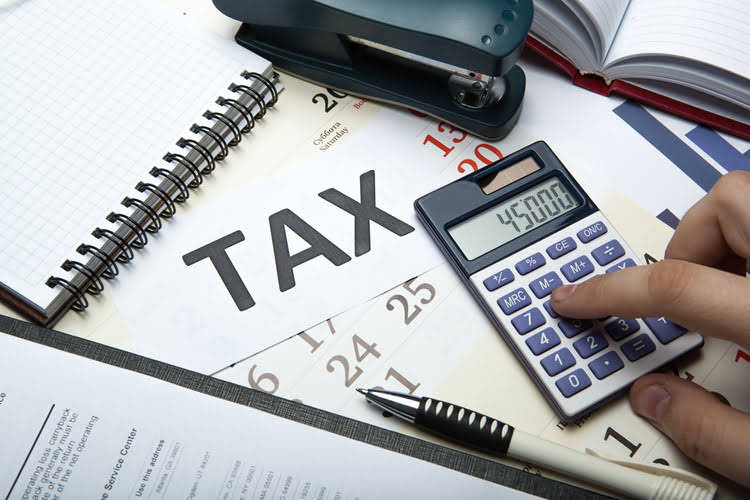
Controllers tend to make more money and have to manage people and organize departments; not all accountants have the same responsibility. Some people thrive in management roles, and these are the best candidates for controller jobs. Others are happiest as experts in their own fields without the complications of oversight. It’s very difficult to nail down an average salary for mid- or upper-level accountants, but the majority of career accountants earn above $60,000 within three to five years after becoming CPAs.
This includes developing and maintaining accounting policies and procedures to ensure accuracy and compliance. The controller also prepares financial statements, reports, analyses, and other documents to present detailed information about the company’s finances. The chief accounting officer works with senior executives or board members to develop strategies to increase profits or reduce costs without sacrificing the company’s quality of services or products. It would bring added value to the organization while simultaneously minimizing risk exposure. Alongside the chief financial officer, they are responsible for leading a group of finance industry professionals in maintaining essential day-to-day financial operations and ensuring the company’s overall financial health.
What Factors Influenced Your Decision to Pursue a Career as a Chief Accounting Officer?
Additionally, a controller has an average salary of $101,204, which is higher than the $61,481 average annual salary of a chief accountant. In many situations, a company’s vice president of finance mimics the traditional role of CFO. A vice president is often tasked with the highest-level of financial and accounting oversight, while a controller’s role is more limited to the financial preparation and management of the financial reporting process. For companies with both a controller and vice president of finance, the controller would most likely report directly to the vice president. In general, CFOs often take a greater presence in external-facing tasks including mergers, acquisitions, or involvement with investors. Meanwhile, financial controllers own more of the internal reporting process including implementing internal controls, managing the month-end close schedule, and ensuring financial accuracy.
The CAO oversees the day-to-day operations of the accounting department, including budgeting, financial reporting, and auditing. Whether it’s attending events, catching up with family or friends, or simply taking a breather during the day, time management is vital so that chief accounting officers can live an enriching life outside of work. On the other hand, the chief financial officer of an organization is accountable for all aspects of the company’s financial management. In addition to having top-notch leadership, communication, strategic thinking, and business trend awareness skills, an effective CAO also needs expertise in financial planning, budgeting, and risk management capabilities.
What is a chief accounting officer (CAO)?
Since these providers may collect personal data like your IP address we allow you to block them here. Please be aware that this might heavily reduce the functionality and appearance https://www.bookstime.com/ of our site. They may also have a Certified Management Accountant (CMA) certification along with their Certified in Strategy and Competitive Analysis (CSCA) certificate.
- It includes performing internal audits, reviewing financial statements and reports, and ensuring that the company’s financial systems and procedures comply with legal and regulatory requirements.
- In terms of duties and responsibilities, there is no practical difference between the two titles.
- The CAO oversees the day-to-day operations of the accounting department, including budgeting, financial reporting, and auditing.
- Senior-level accountancy jobs require a CPA designation and maybe even a certified management accountant (CMA), chartered financial analyst (CFA), or other professional designation.
- Controllers also manage the monthly, quarterly, and annual financial close process, ensuring the financial statements are produced in accordance with GAAP.
- So, the CAO must regularly make a reliable cash flow forecast to better prepare their organization for future financial needs or events.
The CAO’s primary responsibility is to ensure that all financial reporting, accounting policies, and procedures are accurate, complete, and comply with relevant laws and regulations. Motivating employees and delegating tasks is an essential skills for chief accounting officers (CAOs) when leading teams to monitor an organization’s financial health. A CAO is expected to have a solid understanding of strategic planning to assist companies in establishing and achieving their financial objectives. They have the responsibility of producing financial statements that guide the movement of the company forward. At a macro level, a controller’s responsibilities includes being a contributor to the strategic plan for growth, an implementer of strategy, an operator who maintains internal efficiency, and a steward of the business’s assets. The CFO, the senior finance executive, is in charge of strategic financial direction, corporate governance, risk management, financing, and board liaison.
Lead by Example- Tips For How to Become a Success Chief Accounting Officer
It’s important to assess your company’s current status along with future growth goals before making any staffing decisions. Contact Signature Analytics today to find out how we can chief accounting officer vs.controller help you optimize your company’s financial future. An outsourced controller will have experience in a wider range of industries providing innovative solutions to old problems.
- In-house controllers may not see the forest for the tree, missing opportunities to cut costs or amend business practices that may not be optimal.
- Again, a controller at a smaller company may have much smaller requirements than a large public corporation that will seek 20+ years of experience in a related, relevant industry.
- It’s not uncommon to work more than 10 hours a day for six days a week during tax season.
- However, whether you need to fill the role with a full-time position or with a contracted position will depend on the specific situation.
- CAOs also play a crucial role in identifying potential risks and opportunities and recommending mitigation strategies.
